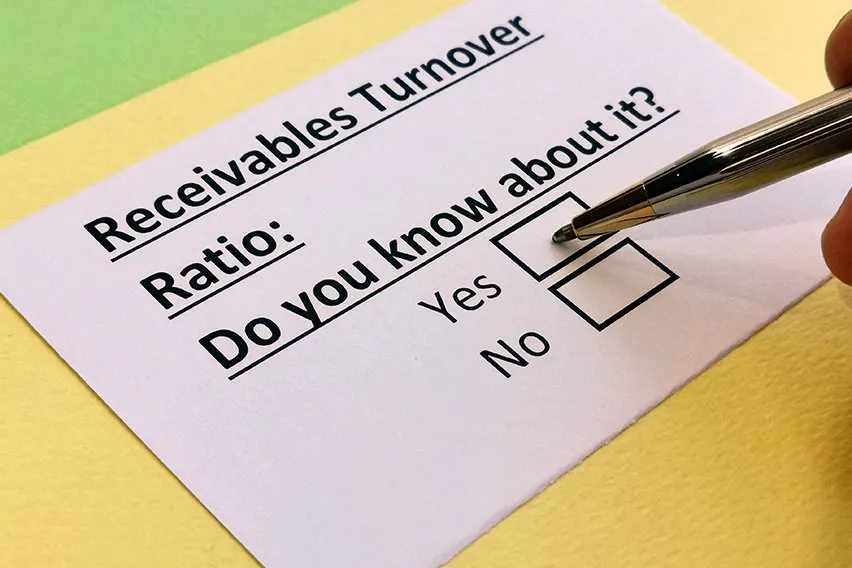How to Find Investors: Startups and Small Businesses Guide

For small business owners and startup entrepreneurs, securing investments is crucial for turning a business idea into a viable venture. Without enough capital, growing a business in the early years can be very difficult. While getting approached by a “mysterious benefactor” or landing a deal on Shark Tank would be ideal, in reality, entrepreneurs need to actively pursue investments through various channels to set their companies up for growth and success. Various funding options, such as angel investors, venture capital, and crowdfunding, are available for securing investments.
Many entrepreneurs feel uncertain about finding funding and choosing the right investors. Understanding how much funding is required is essential, as each business has unique financial needs that influence its funding requirements. This guide offers a roadmap with 8 key considerations for startups and businesses seeking the perfect investor.
Key takeaways
- Finding and persuading the right investors is essential for launching or expanding your business.
- Businesses can secure funding through various means, including crowdfunding, friends and family, venture capital, and angel investors.
- Depending on the funding source, investments may need to be repaid through dividends, loan repayment with interest, or share repurchase.
- A strong pitch, including a business plan, clear financial statements, and proof of concept, is crucial for securing meaningful investment.
Table of contents
- Crowdfunding
- Friends and Family
- Angel Investors
- Venture Capital
- Business Incubator
- Network
- Private Investors
- Events
- How to Be Investor-Ready
- How to Select an Investor
- Conclusion
- FAQs about how to find investors
1. Crowdfunding
Crowdfunding is an increasingly popular method for entrepreneurs to raise money for their businesses, especially for startup funding. It involves generating interest in a new product or service and then soliciting donations to cover startup costs.
In the United States, crowdfunding campaigns raise an average of $28,656, with a 22.4% overall success rate. Crowdfunding’s success relies heavily on marketing and public opinion, making it particularly effective for novel businesses that generate public excitement.
While crowdfunding rarely covers all startup costs, it can significantly help secure initial funding without relying on traditional methods like small business loans. Due to its reliance on numerous small contributions, setting a modest and attainable funding goal is advisable.

There are several types of crowdfunding:
- Reward-Based Crowdfunding: Contributors donate relatively small amounts in exchange for a reward, such as a future free product from the company.
- Peer-to-Peer Lending (or Debt-Based Crowdfunding): This involves platforms that facilitate loans by connecting businesses seeking investment with investors who earn interest on their loan, rather than taking ownership in the company.
- Equity Crowdfunding: In this model, investors gain a share of ownership in the company, typically through shares. Instead of a return on investment, they profit if the company succeeds.
2. Friends and family
Friends and family are often among the first sources of startup funding for new businesses. Compared to the complexities of securing funds through other channels like small business loans, pitching to close personal relationships can provide the necessary capital to launch a business. Many investors, particularly friends and family, come with certain expectations and conditions attached to their funding, such as interest rates and ownership stakes.
Approximately 40% of American entrepreneurs seek initial funding from friends and family, making it the largest source of funding for early-stage ventures. These businesses collectively secure over $60 billion in friends and family investment annually.
While securing investment from friends and family might be easier than traditional investment routes, it’s crucial to remember that they become investors who face risks, hold a stake, and may influence business decisions. Therefore, it’s essential to pitch as professionally as you would to any other potential source of capital and to be mindful of the risks involved in mixing personal and business relationships.
Using a contract to clarify expectations, authority, and payback details can help maintain relationships when receiving investment from friends and family. Clearly outlining repayment terms and conditions in contracts is important, as investors will likely expect to be paid back, adding a layer of professionalism to personal arrangements.
3. Angel investors
Angel investors, a type of individual investor, can be a business’s “savior”. They are often affluent professionals who invest in relatively young businesses. Angel investors typically seek businesses with strong growth potential in the early stages, aiming for a substantial return on their investment.
Securing funding from an angel investor can often provide enough capital to launch a business. This offers the advantage of not having to split equity among a large group of investors, simplifying profit-sharing. However, an investor with a significant stake may want an active role, potentially requiring the entrepreneur to relinquish some control.
Angel investors provide funding with less risk for entrepreneurs compared to traditional venture capitalists, who tend to focus on profits and equity stakes.
A well-crafted plan, a solid business strategy, and some effort to find angel investors can significantly increase a startup’s chances of success.
Angel investors provide substantial funding to numerous startups each year.
Here are a few resources to find angel investors:
- Angel Capital Association: Provides a list of angels by state.
- Angel Investment Network: Connects entrepreneurs with a large network of investors.
- Pipeline Angels: Focuses on funding women-owned businesses.
4. Venture capital
Venture capital is a form of financing provided by venture capital firms. These firms are funded by limited partners who pool their resources to invest in select businesses with high growth potential over a relatively short period. In exchange for venture capital investment, firms typically receive equity in the business and a role in its strategies and direction.
Venture capital firms aim to support company growth until it can go public or be acquired by a larger corporation, generating returns for both the business and the venture capitalists. However, this goal may not align with every business’s vision, so it’s essential to consider the long-term implications of venture capital.
It is important to understand the financial risks associated with venture capital investment. While venture capitalist investment has fluctuated due to market conditions, substantial capital remains available for promising businesses. Venture capital firms often prioritize established businesses seeking to expand, but they sometimes invest in startups. If a business is prepared for rapid scaling and the associated risks, venture capital can be a powerful funding avenue.
5. Business incubator
A business incubator is a program designed to offer resources, investment, mentorship, and support to new businesses and startups, helping turn a new business idea into a viable enterprise. Incubators offer comprehensive assistance, including:
- Office space
- Equipment
- Training
- Access to advisors
- Mentorship
- Small business administration assistance
- Introductions to potential investors
Additionally, incubators can connect startups with potential partners, such as individuals or organizations that can provide support, resources, or funding to help realize their business ideas.
Business incubators receive funding from various sources, such as universities, business colleges, nonprofits, for-profit property development ventures, and venture capitalists. Some incubators offer free services to eligible businesses, while others charge fees or take a percentage of company profits.
Business incubators can be extremely beneficial for startups, as the funding, experience, and resources they provide can significantly reduce startup and operating costs, improving the likelihood of early success.
6. Network
Leveraging your professional network is a time-tested approach to finding investment. Understanding the process involved in leveraging a professional network is crucial; it typically involves several steps, such as identifying potential investors, building strategic relationships, and persuading them to invest. Strategic relationships within a working network are invaluable; potential investors are everywhere, and it’s up to entrepreneurs to identify and persuade them.
Finding equity investment through networking is a viable strategy for securing necessary capital. Professionals should consistently network, build new relationships, and nurture existing ones. Cultivating a relationship with the right person can create unexpected opportunities, and anyone in your network could become a potential investor.
When exploring your network for investors, begin with businesses in your industry, as they may know investors interested in your offerings. Consider contacting advisors or former colleagues in your niche to tap into their networks and identify suitable investors. Additionally, reaching out to universities with relevant degree programs can be beneficial, as they often host influential individuals who may be interested in investing. Local business networking groups can also be a valuable resource for connecting with potential investors and other professionals in your field.
7. Private investors
Private investment involves obtaining funding from a wealthy individual in exchange for company equity. In the early stages, a private investor may be the sole funding source. Angel investors are a type of private investor, but funding can also come from friends, family, private equity firms, or venture capitalist groups.
Identifying a private investor can be challenging and may require attending investment events, conferences, or industry-specific gatherings. Personal referrals often increase the likelihood of turning an introduction into an investment, making personal and professional connections valuable.
While private investment can be an effective way to secure initial funding without involving numerous equity holders, it has limitations. Similar to angel investors, private investors typically hold a significant portion of the company and may seek influence over business strategy and major decisions to protect their investment. Entrepreneurs may need to relinquish some control in exchange for substantial private investment.
Despite recent market fluctuations, private investors continue to inject capital into promising new companies.
8. Events
Meeting potential investors in person is a highly effective way to make a strong impression and secure funding. Attending investor summits, industry conferences, and pitch competitions is highly recommended, as these events attract affluent individuals and venture capitalists actively seeking investment opportunities.
Preparation is key before attending such events. Your pitch needs to be polished and persuasive, demonstrating a solid plan that aligns with the investor’s perspective. Additionally, you should be comfortable networking, socializing, and building rapport.
Research indicates that face-to-face meetings foster stronger business relationships and improve communication through nonverbal cues. In the context of substantial investments, these factors can build trust and increase an investor’s confidence in your pitch and organization.
How to be investor-ready
When engaging with potential investors, it’s crucial to be prepared to capitalize on the opportunity and present your best self.
A well-crafted business plan is essential for demonstrating trustworthiness and the potential to generate value for investors. The business plan should detail your business model, key personnel and their roles, financial objectives, and financial projections. Presenting this information in a pitch deck format is recommended for investor presentations.
While a business plan outlines the concept’s monetization potential, you also need to provide proof of concept. For product-based businesses, this may involve creating a prototype to demonstrate real-world functionality. Service or platform-based businesses may need to provide detailed models and endorsements from industry leaders to validate the concept’s value.
Understanding how much funding is required for your business is crucial. Each business has unique financial needs that influence its funding requirements, and determining the necessary startup funding is a key step in planning for future success.
Demonstrating the concept’s value not only strengthens the pitch but also refines the idea itself. The research and development phase is an opportune time to seek smaller investments from friends and family to cover associated costs.
Maintaining organized and transparent financial records is crucial, regardless of seeking investment. Clear and favorable financial reporting provides investors with a comprehensive view of the company’s financial health and potential. A profit and loss statement is essential for evaluating profitability, while a steady cash flow and minimized operating costs further enhance the company’s appeal.
FreshBooks accounting software can streamline financial organization and ensure accounts are investor-ready.

Before seeking investment, it’s essential to have a clear understanding of your needs and expectations. Define the roles you want to fill, such as stakeholders, co-founders, business partners, or advisors, and clarify the level of involvement you anticipate. Determine whether you need mentorship and guidance or simply capital and whether you want access to the investor’s network.
Clarity on these points will streamline investor meetings and ensure productive conversations with aligned investors.
Be prepared to decline offers that don’t align with your interests. Not all investors prioritize your company’s best interests, and accepting unfavorable terms can lead to long-term complications. Weigh the potential short-term gain of funding against the potential for future problems and be willing to walk away from unsuitable deals.
How to select an investor
When choosing an investor, consider their past performance and track record, assessing the success of their previous investments. Evaluate their desired level of involvement in your company and ensure it aligns with your vision. Beyond funding, consider the additional value they bring, such as industry expertise or valuable connections.
Remember that investing is a reciprocal relationship that can span many years, so carefully assess the potential dynamics of that relationship.
Conclusion
Understanding how to find investors is crucial for any business, especially for entrepreneurs and startups. Funding from investors is often essential to implement business plans and achieve profitable growth. With a strategic approach, compelling pitch, and persistent effort, entrepreneurs can secure the capital needed to realize their vision.

FAQs about how to find investors
How much does it cost to find investors?
The direct costs of finding potential investors are generally low. Expenses typically include fees for industry events and pitch competitions, as well as the costs associated with developing a proof of concept and the opportunity cost of not generating revenue during that time. Avoid significant out-of-pocket expenses when pitching to investors.
How do investors get paid back?
Investors are commonly repaid through quarterly dividends, which are distributions of the company’s profits. Some companies may also offer share repurchase, buying back the investor’s shares, or use debt refinancing.
How do you ask an investor for money?
A strong pitch is essential when asking an investor for funding. This includes a well-structured business plan, organized financial statements, a demonstration of the concept, and a clear articulation of the business’s needs. Demonstrating growth potential and good faith is crucial for a successful pitch.
How much money should you ask for from investors?
A common guideline is to request an investment amount equivalent to 20% to 30% of your company’s valuation, in exchange for 20% to 30% equity. However, the specific amount and equity offered can vary depending on the company and the investor.
Reviewed by
Michelle Payne has 15 years of experience as a Certified Public Accountant with a strong background in audit, tax, and consulting services. Michelle earned a Bachelor’s of Science and Accounting from Minnesota State University and has provided accounting support across a variety of industries, including retail, manufacturing, higher education, and professional services. She has more than five years of experience working with non-profit organizations in a finance capacity. Keep up with Michelle’s CPA career — and ultramarathoning endeavors — on LinkedIn.
RELATED ARTICLES



 What Is an Income Statement?
What Is an Income Statement? How to Calculate Accounts Receivable Turnover
How to Calculate Accounts Receivable Turnover What Are Fixed Assets? | A Simple Primer for Small Businesses
What Are Fixed Assets? | A Simple Primer for Small Businesses Operating Margin Equation: How to Calculate
Operating Margin Equation: How to Calculate Is Service Revenue an Asset? Breaking down the Income Statement
Is Service Revenue an Asset? Breaking down the Income Statement Chart Of Accounts: Definition, Types And How it Works
Chart Of Accounts: Definition, Types And How it Works